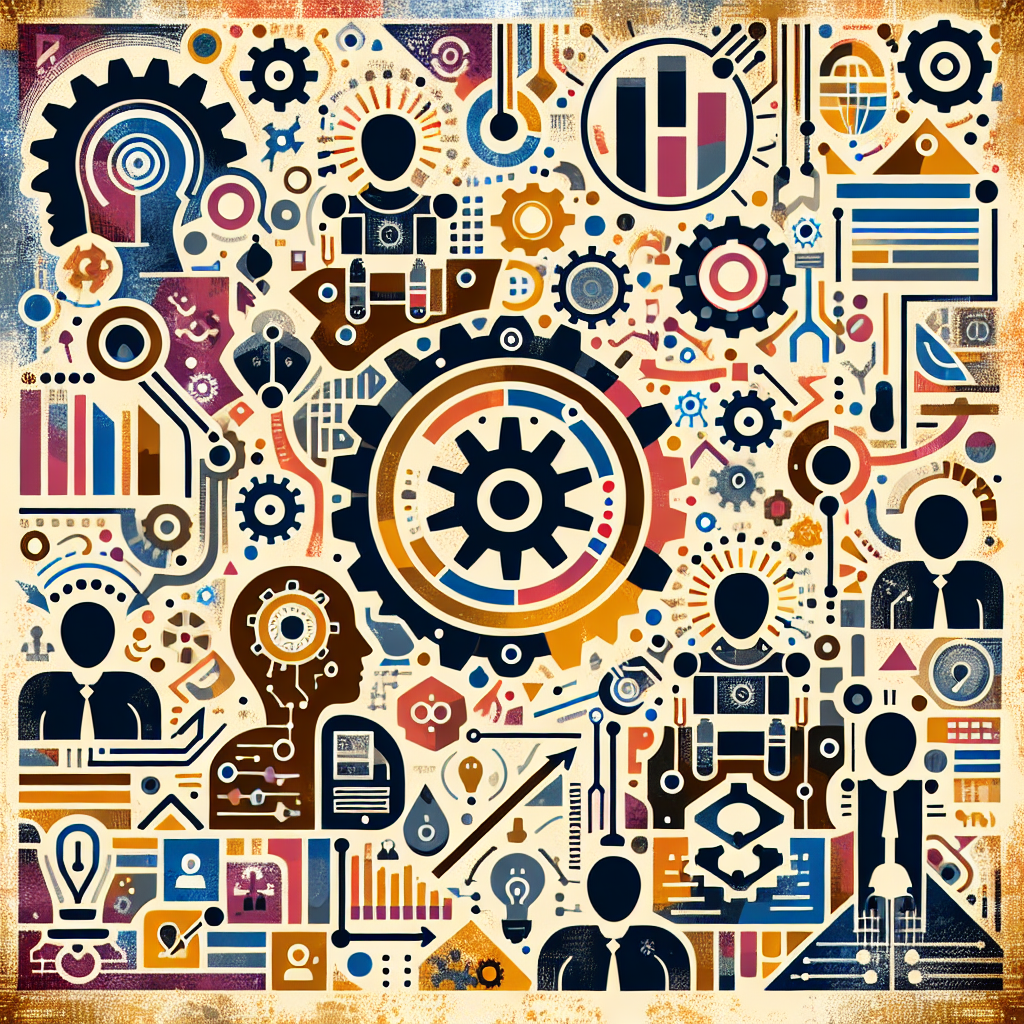AGI and the Future of Work: How Will AI Impact the Job Market?
Artificial General Intelligence (AGI) is the next frontier in artificial intelligence, representing the ability of a machine to perform any intellectual task that a human can do. As AGI continues to advance, the impact it will have on the job market is a topic of great interest and concern. Will AI create new job opportunities or lead to massive job displacement? How can workers prepare for the changes that are coming? In this article, we will explore these questions and more as we delve into the future of work in the age of AGI.
The Rise of Artificial General Intelligence
Artificial Intelligence (AI) has made significant advancements in recent years, with machine learning algorithms powering everything from voice assistants to self-driving cars. However, most AI systems are narrow in scope, designed to perform specific tasks within a limited domain. AGI, on the other hand, aims to create machines that can think and learn like humans, with the ability to generalize across a wide range of tasks.
The development of AGI represents a major leap forward in AI research, with the potential to revolutionize industries and transform the way we work. While AGI is still in the early stages of development, researchers are making steady progress towards creating machines with human-level intelligence. The implications of AGI for the job market are profound, as it has the potential to automate a wide range of tasks currently performed by humans.
The Impact of AGI on the Job Market
The impact of AGI on the job market is a topic of much debate among experts. Some argue that AGI will create new job opportunities and lead to greater productivity, while others warn of massive job displacement and economic disruption. The truth likely lies somewhere in between, with AGI bringing both opportunities and challenges for workers in various industries.
One of the key ways that AGI will impact the job market is through automation. As machines become more intelligent and capable of performing a wider range of tasks, they will increasingly replace human workers in a variety of industries. Jobs that involve repetitive or routine tasks are particularly at risk of automation, as machines are able to perform these tasks more efficiently and accurately than humans.
On the other hand, AGI also has the potential to create new job opportunities in industries that have yet to be automated. For example, the development of AGI could lead to the creation of new roles in AI research, software development, and data analysis. Workers who are able to adapt to the changing job market and acquire the necessary skills to work alongside AI systems will be well-positioned to thrive in the age of AGI.
Preparing for the Future of Work
As AGI continues to advance, workers will need to prepare for the changes that are coming to the job market. This may involve acquiring new skills, retraining for new roles, or transitioning to industries that are less susceptible to automation. Workers who are able to adapt to the changing job market will be better equipped to thrive in the age of AGI.
One of the key skills that workers will need in the age of AGI is digital literacy. As AI systems become more prevalent in the workplace, workers will need to be comfortable using and interacting with these systems. This may involve learning how to operate AI-powered tools, analyze data generated by AI systems, or collaborate with AI systems to perform tasks more efficiently.
In addition to digital literacy, workers will also need to develop soft skills that are difficult for machines to replicate. These may include critical thinking, creativity, emotional intelligence, and problem-solving skills. Workers who are able to leverage these skills alongside AI systems will be well-positioned to succeed in the evolving job market.
FAQs
Q: Will AGI lead to massive job displacement?
A: While AGI has the potential to automate a wide range of tasks currently performed by humans, it is unlikely to lead to massive job displacement overnight. The transition to a more automated workforce will likely be gradual, giving workers time to adapt to the changing job market.
Q: What industries are most at risk of automation from AGI?
A: Industries that involve repetitive or routine tasks, such as manufacturing, transportation, and customer service, are most at risk of automation from AGI. Workers in these industries may need to acquire new skills or transition to roles that are less susceptible to automation.
Q: How can workers prepare for the future of work in the age of AGI?
A: Workers can prepare for the future of work by acquiring new skills, developing soft skills that are difficult for machines to replicate, and staying informed about the latest advancements in AI research. By adapting to the changing job market, workers can position themselves for success in the age of AGI.
In conclusion, AGI represents a major advancement in artificial intelligence, with the potential to revolutionize industries and transform the way we work. While the impact of AGI on the job market is still uncertain, workers can prepare for the changes that are coming by acquiring new skills, developing soft skills, and staying informed about the latest advancements in AI research. By adapting to the changing job market, workers can position themselves for success in the age of AGI.

